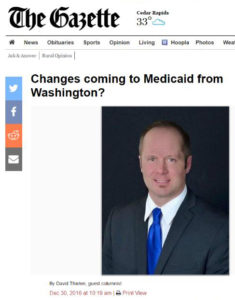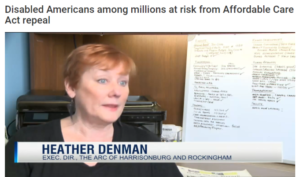The Arc Applauds U.S. Supreme Court Decision Allowing Independent Disability Discrimination Claims Against School Districts
By: Shira Wakschlag, Director, Legal Advocacy & Associate General Counsel
In a major win for students with disabilities and their families, the U.S. Supreme Court issued a unanimous decision authored by Justice Elena Kagan on Wednesday in Fry v. Napoleon Community Schools that allows students to bring lawsuits directly under the Americans with Disabilities Act (ADA) and Section 504 of the Rehabilitation Act of 1973 (Section 504) without requesting an administrative hearing under the Individuals with Disabilities Education Act (IDEA) when their claim is not related to the adequacy of their education. The IDEA requires schools to provide specialized instruction and related services to eligible students to help them make progress on their educational goals. In contrast, the ADA and Section 504 prohibit discrimination of people with disabilities of all ages, both in and out of schools, in any public facility or federally funded program. This decision eliminates certain roadblocks that have prevented students from seeking relief directly in federal court when their claims involve disability discrimination under the ADA or Section 504, rather than their educational services and supports under the IDEA. Attorneys from The Arc attended oral arguments in this case before the U.S. Supreme Court last October.
Ehlena Fry, the plaintiff in the case, has cerebral palsy and uses a service dog, Wonder, to assist her with daily activities, such as “retrieving dropped items, helping her balance when she uses her walker, opening and closing doors, turning on and off lights, helping her take off her coat, [and] helping her transfer to and from the toilet.” When her parents asked the school to allow Ehlena to use Wonder in her kindergarten classroom, the school refused. Ehlena’s individualized education program (IEP) under the IDEA included use of a human aide, and the school argued that the aide met all of Ehlena’s “physical and academic needs,” rendering Wonder unnecessary. As a result, Ehlena’s parents removed her from the school and filed a disability discrimination complaint under the ADA and Section 504 with the U.S. Department of Education’s Office for Civil Rights (OCR).
OCR investigated and concluded that the school had discriminated against Ehlena by denying her use of her service dog, just as it would be discrimination to require a student who uses a wheelchair or a blind student to be carried or led around by a teacher or aide rather than permitting the student to use a guide dog or a cane. Following OCR’s investigation and findings, the school agreed to allow Ehlena to attend school with Wonder, but the family chose to enroll her in another school for fear of retaliation. The family also filed a lawsuit in federal court against the school system alleging disability discrimination and seeking monetary damages under the ADA and Section 504 for the school’s previous refusal to reasonably accommodate Ehlena’s use of her service animal. The lawsuit was dismissed by both the federal district court and the Sixth Circuit Court of Appeals who concluded that any claims that were educational in nature had to undergo the administrative hearing process in the IDEA before they could be filed in federal court.
In finding in favor of Ehlena and her family, the U.S. Supreme Court stated that students do not have to exhaust the administrative proceedings required in the IDEA when the essence of their claim is not about the IDEA’s free and appropriate public education (FAPE) requirement, as was the case here. The Court’s opinion offered some general guidance on how to identify whether the IDEA’s FAPE requirement is the essence of a lawsuit against a school, distinguishing between a student who uses a wheelchair suing a school for not having an accessible ramp (which is not about FAPE) and a student with a learning disability suing the school for not providing math tutoring (which is about FAPE). A concurring opinion from Justice Samuel Alito, joined by Justice Clarence Thomas, criticized this part of the Court’s guidance as creating confusion for the lower courts. In addition, because the Frys were not claiming that Ehlena was denied a FAPE under the IDEA, the Court explicitly chose not to address the question of whether students must exhaust the IDEA’s administrative hearing process when the complaint does allege a denial of FAPE but the specific remedy being requested is not available under the IDEA, such as monetary damages.
Though the decision in Fry leaves some questions unanswered, it does eliminate certain roadblocks that have prevented students from seeking relief directly in federal court when their claims involve disability discrimination under the ADA or Section 504, rather than their educational services and supports under the IDEA.


 David Thielen, CEO of The Arc of East Central Iowa, had a
David Thielen, CEO of The Arc of East Central Iowa, had a  Heather Denman, Executive Director of The Arc of Harrison and Rockingham, appeared in a
Heather Denman, Executive Director of The Arc of Harrison and Rockingham, appeared in a 





